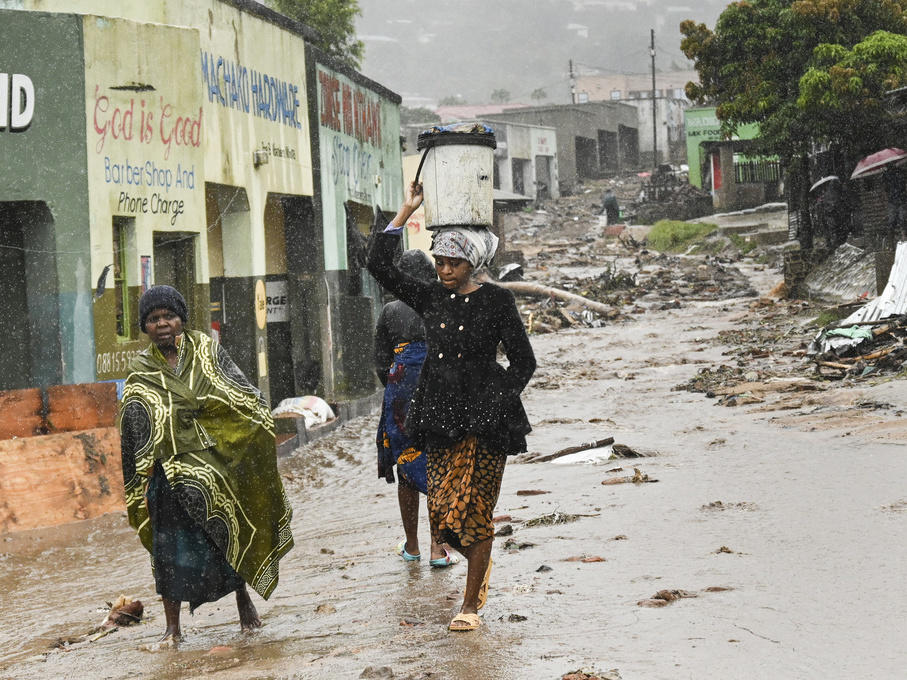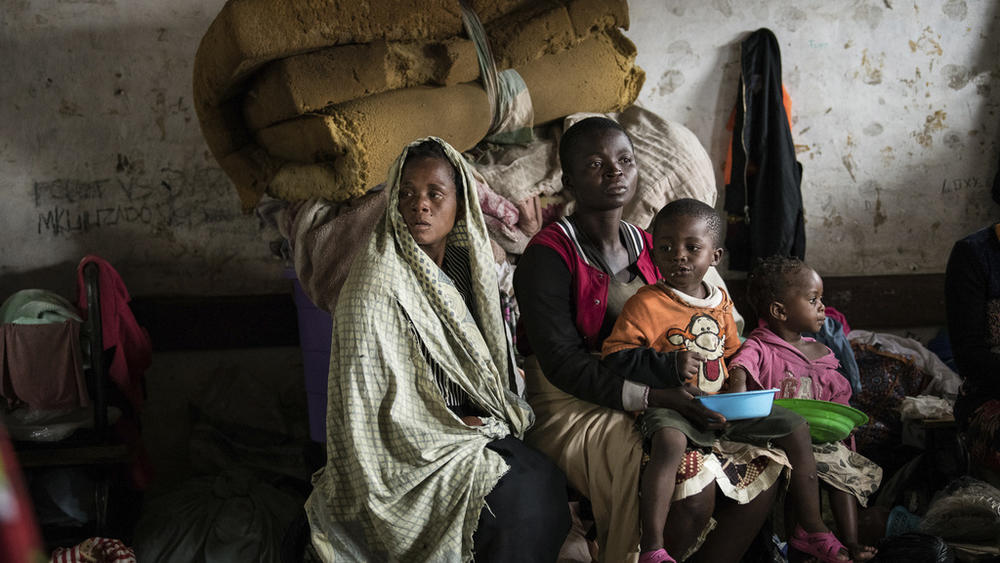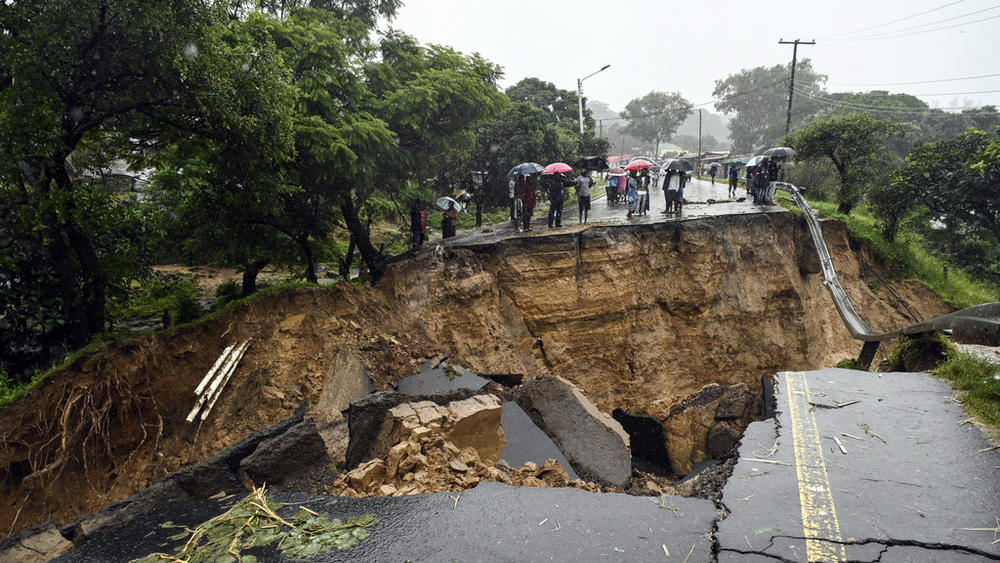Section Branding
Header Content
Cyclone Freddy wrecks Malawi and Mozambique, killing more than 200 people
Primary Content
BLANTYRE, Malawi — The devastating Tropical Cyclone Freddy which has ripped through southern Africa in a rare second landfall has killed at least 216 people in Malawi and Mozambique since Saturday night, with the death toll expected to rise.
Heavy rains that triggered floods and mudslides have killed 199 people in Malawi, authorities said Tuesday. President Lazarus Chakwera declared a "state of disaster" in the country's southern region and the now-ravaged commercial capital, Blantyre. Some 19,000 people in the south of the nation have been displaced, according to Malawi's disaster management directorate.
"Power and communications are down in many affected areas, hindering aid operations," said Stephane Dujarric, the U.N. Secretary General's spokesperson at a press briefing Tuesday afternoon. The most affected regions remain inaccessible so the full extent of the damage is so far unknown.
Reports from Mozambique's disaster institute on Tuesday confirmed that 17 people have died in the country and 1,900 homes have been destroyed in the coastal Zambezia province. Tens of thousands of people are still holed up in storm shelters and accommodation centers.
Freddy will continue to thump central Mozambique and southern Malawi with extreme rainfall before it exits back to the sea late Wednesday afternoon, the U.N.'s meteorological center on the island of Réunion projected.
Human rights group Amnesty International has called on the international community to mobilize resources and boost aid and rescue efforts in the two countries. Relief efforts in the nations are strained and were already battling a cholera outbreak when Freddy struck.
"It is clear that the official death toll will rise in both Malawi and Mozambique, as will reports of wrecked infrastructure," saidTigere Chagutah, Amnesty International's east and southern Africa director. "The affected countries must also be compensated for loss and damage caused by the cyclone."
In November last year, nations agreed to compensate countries affected by extreme weather exacerbated by human-caused climate change. Cyclones are wetter, more frequent and more intense as the planet heats up, scientists say.
"Mozambique and Malawi are among the countries least responsible for climate change, yet they are facing the full force of storms that are intensifying due to global warming driven mostly by carbon emissions from the world's richest nations," Chagutah added.
Cyclone Freddy has been causing destruction in southern Africa since late February. It also pummeled the island states of Madagascar and Réunion last month as it traversed across the Indian Ocean.
The cyclone has intensified a record seven times and has the highest-ever recorded accumulated cyclone energy, or ACE, which is a measurement of how much energy a cyclone has released over time. Freddy recorded more energy over its lifetime than an entire typical U.S. hurricane season.
Freddy first developed near Australia in early February and is set to be the longest-ever recorded tropical cyclone. The U.N.'s weather agency has convened an expert panel to determine whether it has broken the record set by Hurricane John in 1994 of 31 days.
Copyright 2023 NPR. To see more, visit https://www.npr.org.



